Abstract
OBJECTIVE: To examine the effectiveness of a formal tracking system for residents' clinical experiences. DESIGN: We examined three shifts, selected at random, for each resident (without residents' knowledge) during emergency rotations. Information from patient charts was compared with residents' computerized records for rotation (location and preceptor) and patient (age, sex, diagnosis, and procedure) information. SETTING: The Northeastern Ontario Family Medicine Program, a program designed to provide remote, rural, and northern resident experience. PARTICIPANTS: First-, second-, and third-year residents on emergency rotations in the academic years 1992 to 1994. MAIN OUTCOME MEASURES: Compliance, reliability, and validity of tracking records. RESULTS: Residents recorded patient encounters 88% of the time. Compliance with rotation information was high (100% rotation, 94% preceptor). Agreement on patient age and sex was high. Procedure compliance was somewhat lower (83%). Intrarater reliability (91%) and inter-rater reliability (78%) are acceptably high, as is validity when compared with a gold standard entry (88%). CONCLUSIONS: Regular entry of reliable and valid data is facilitated by the computerized resident-patient encounter tracking program. This computer tool should prove useful for multilevel program evaluation in the future.
Full text
PDF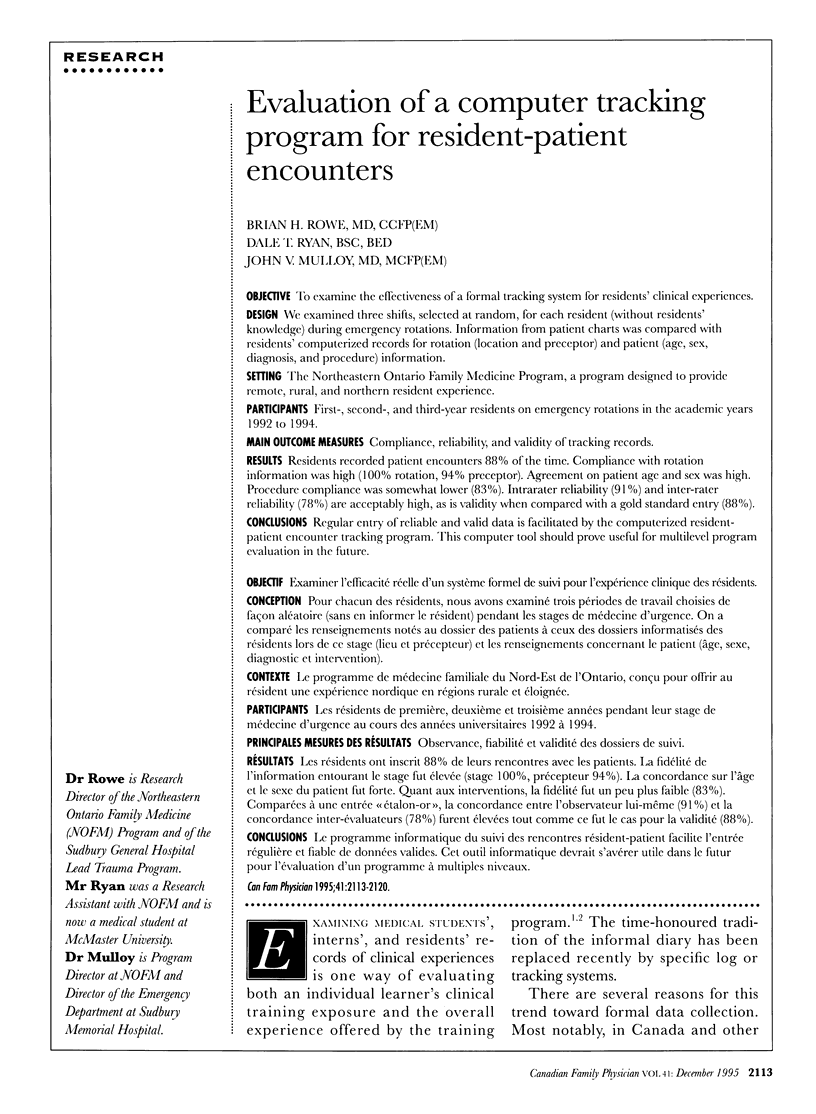
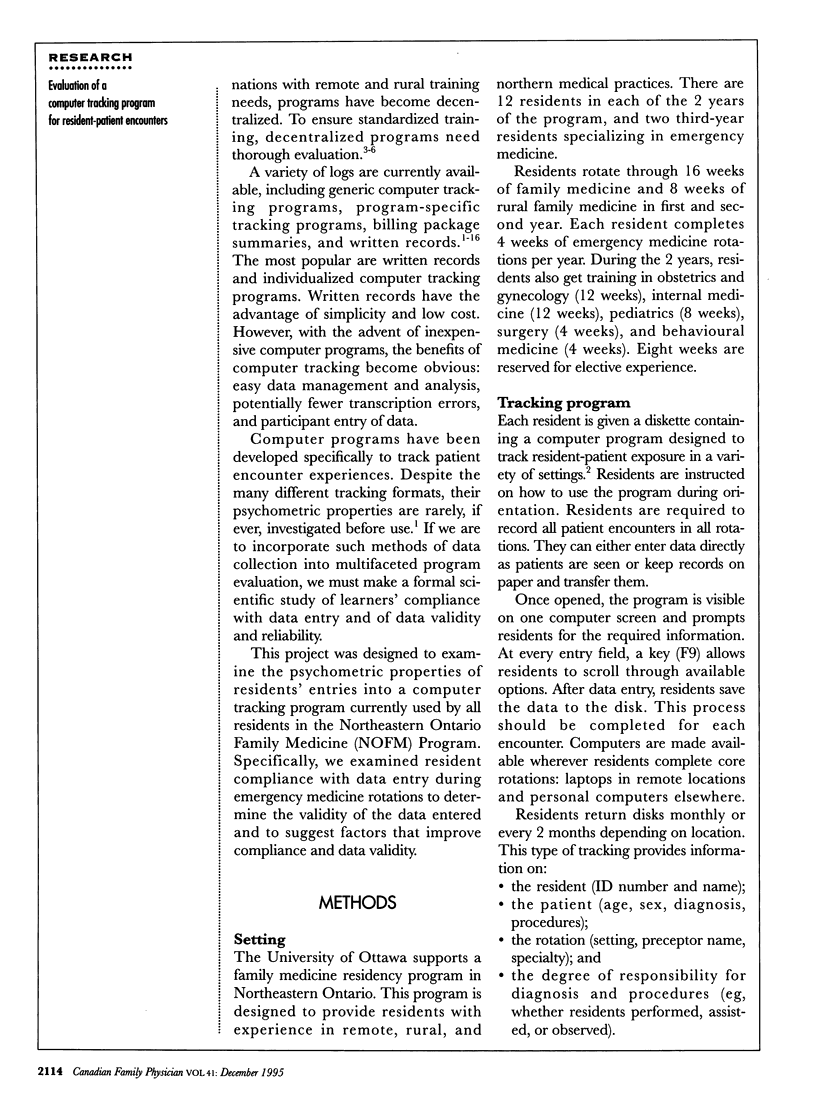
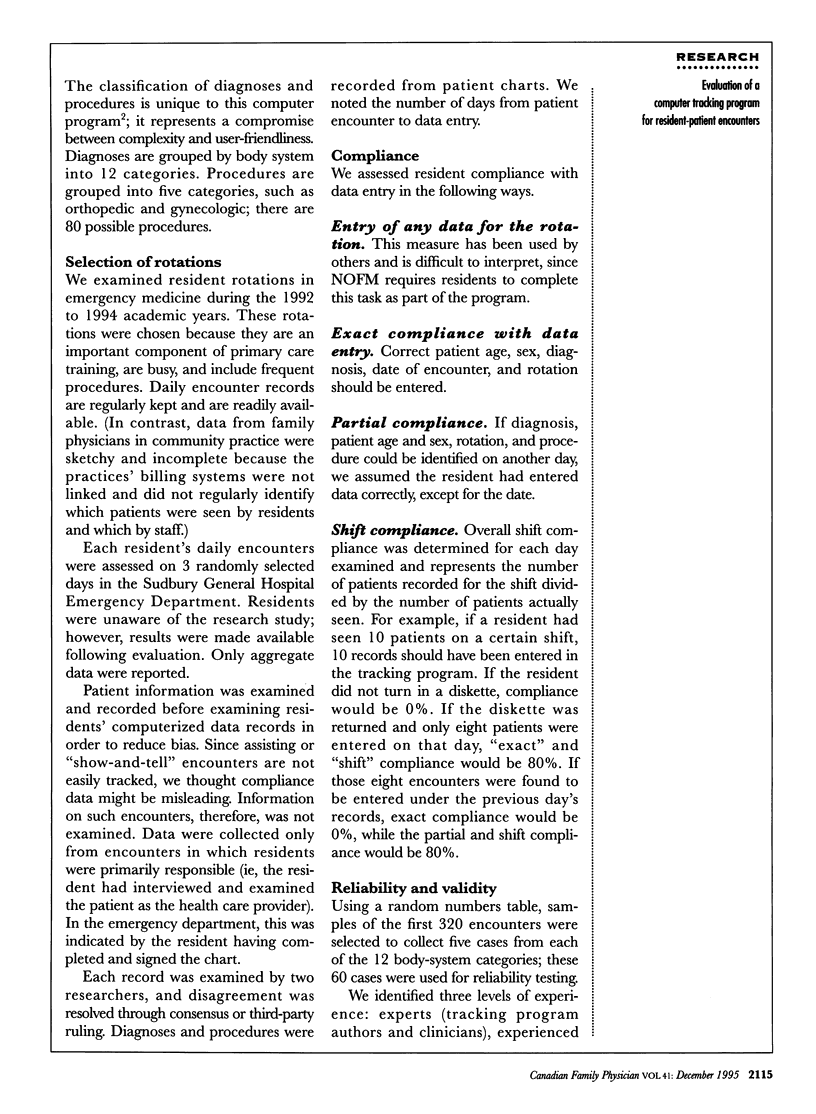
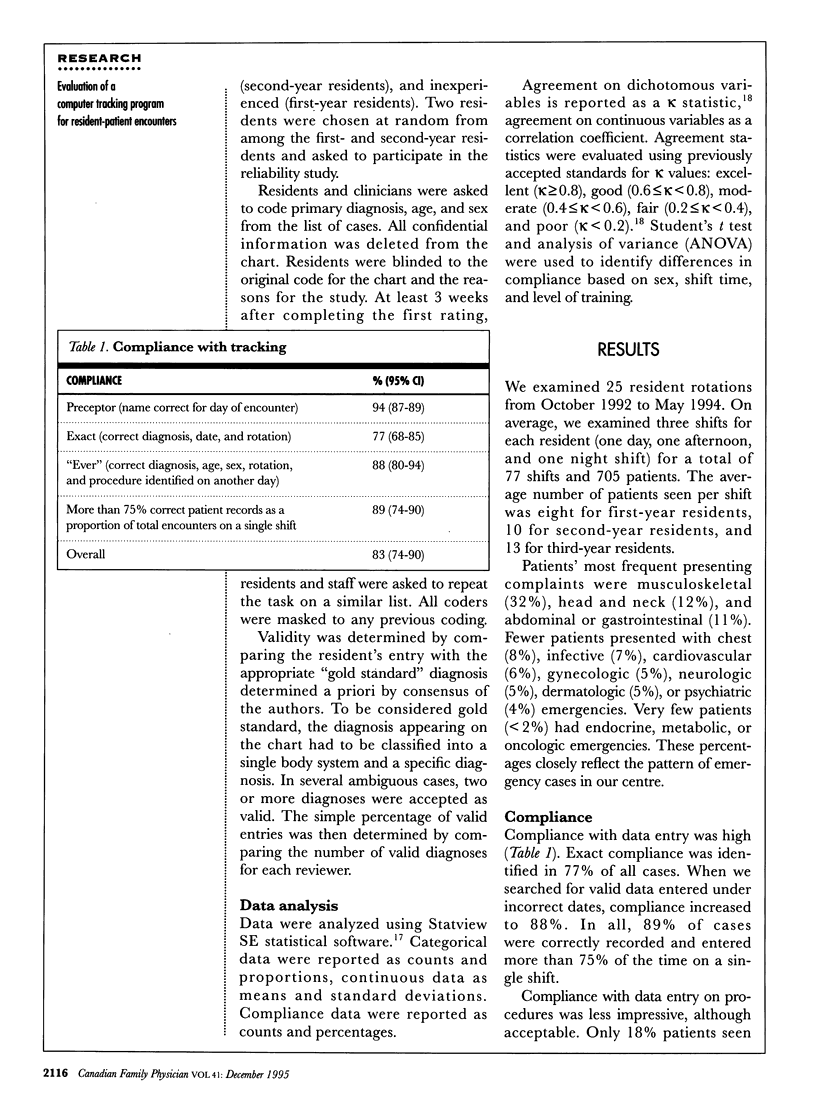
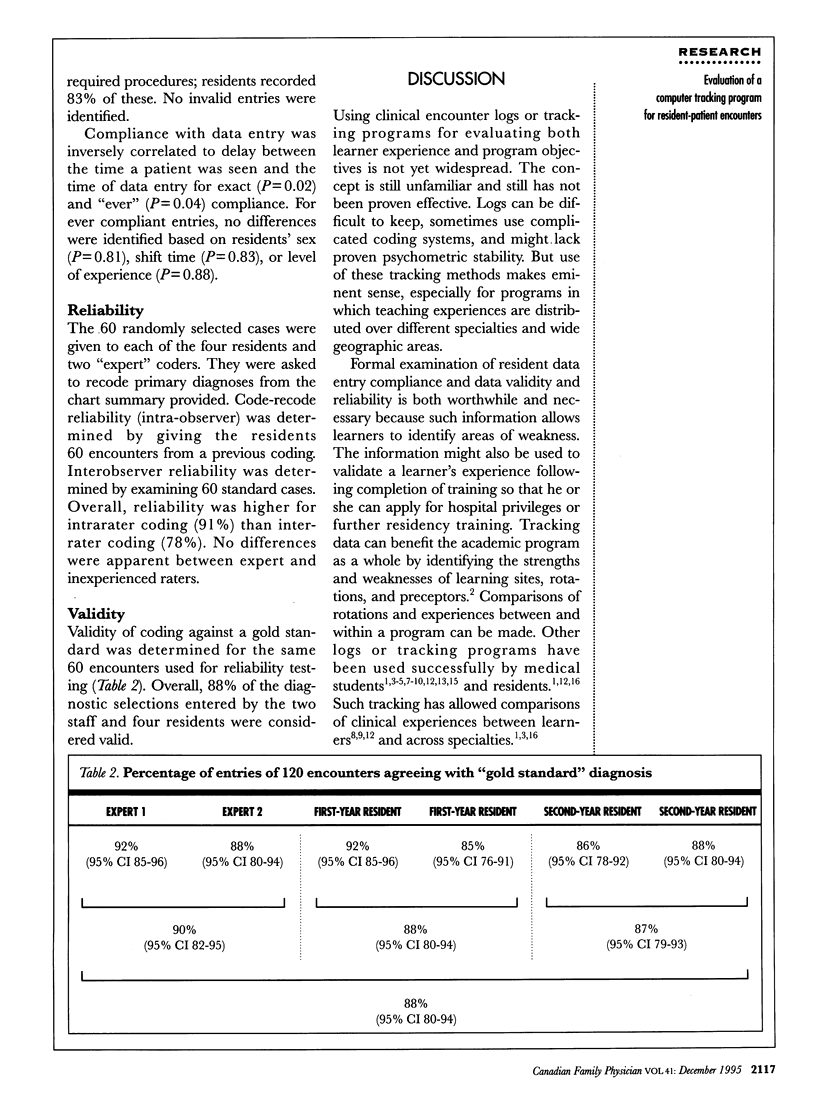
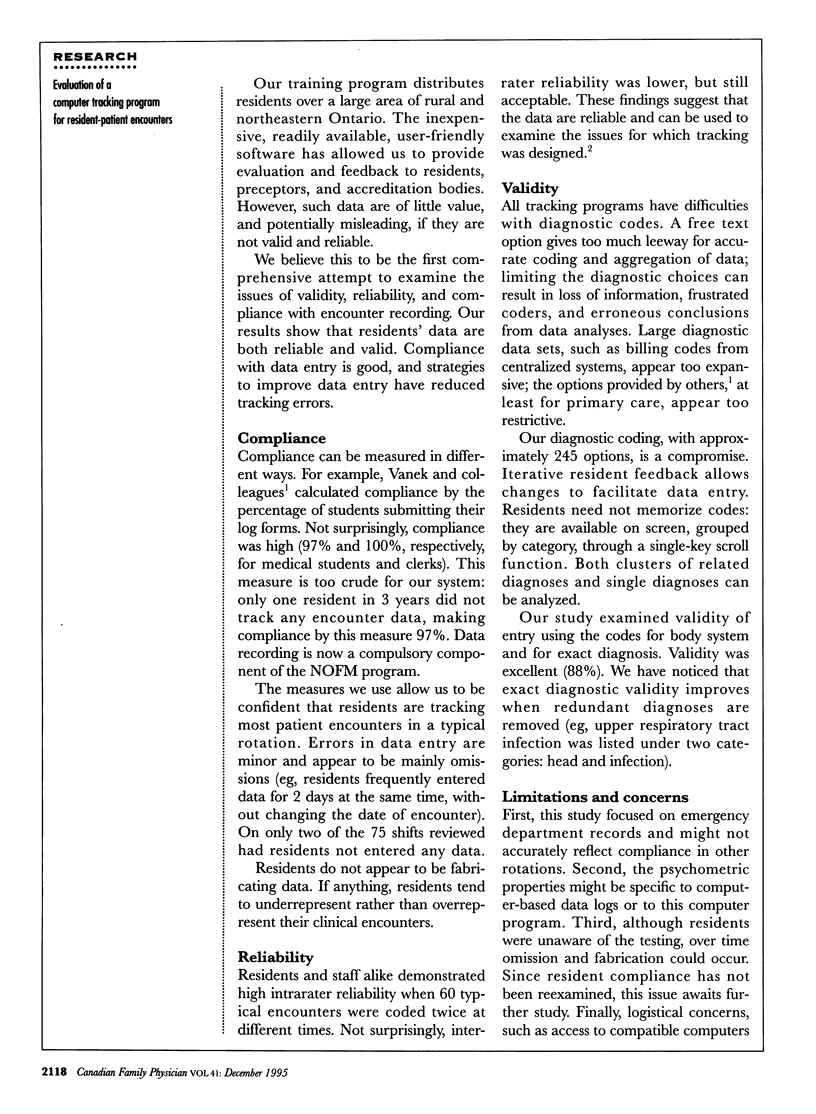
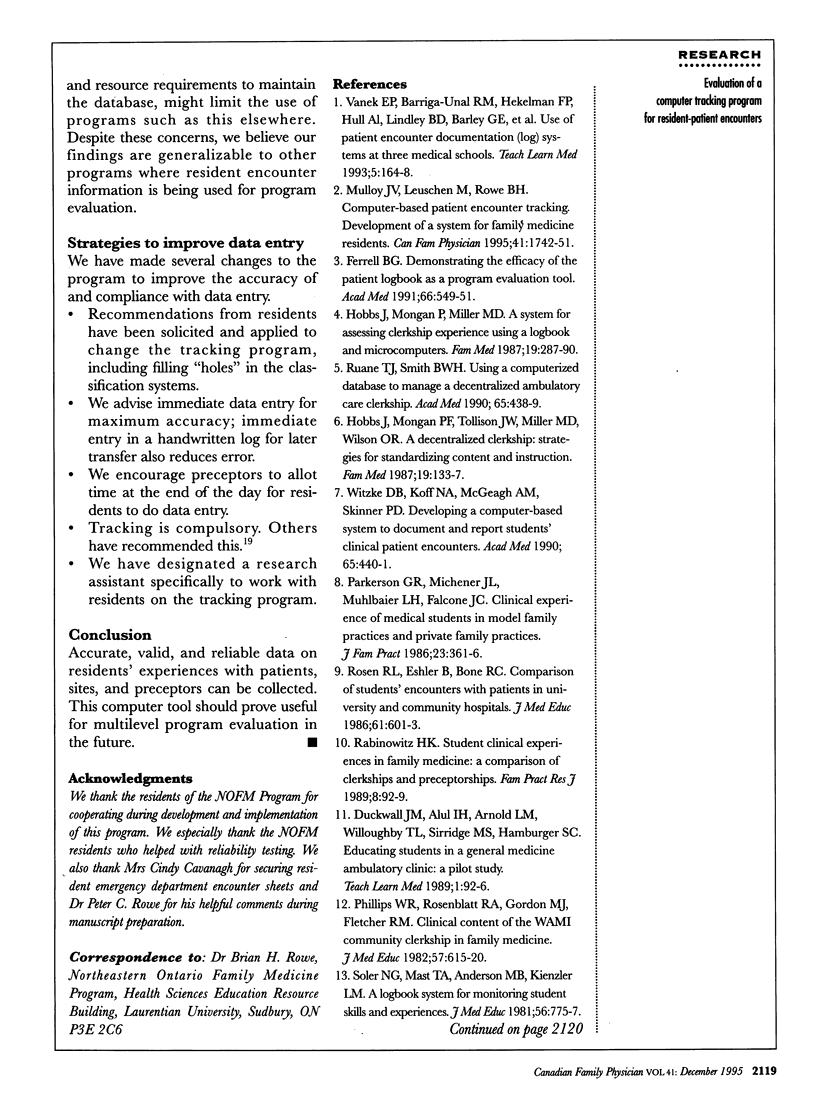
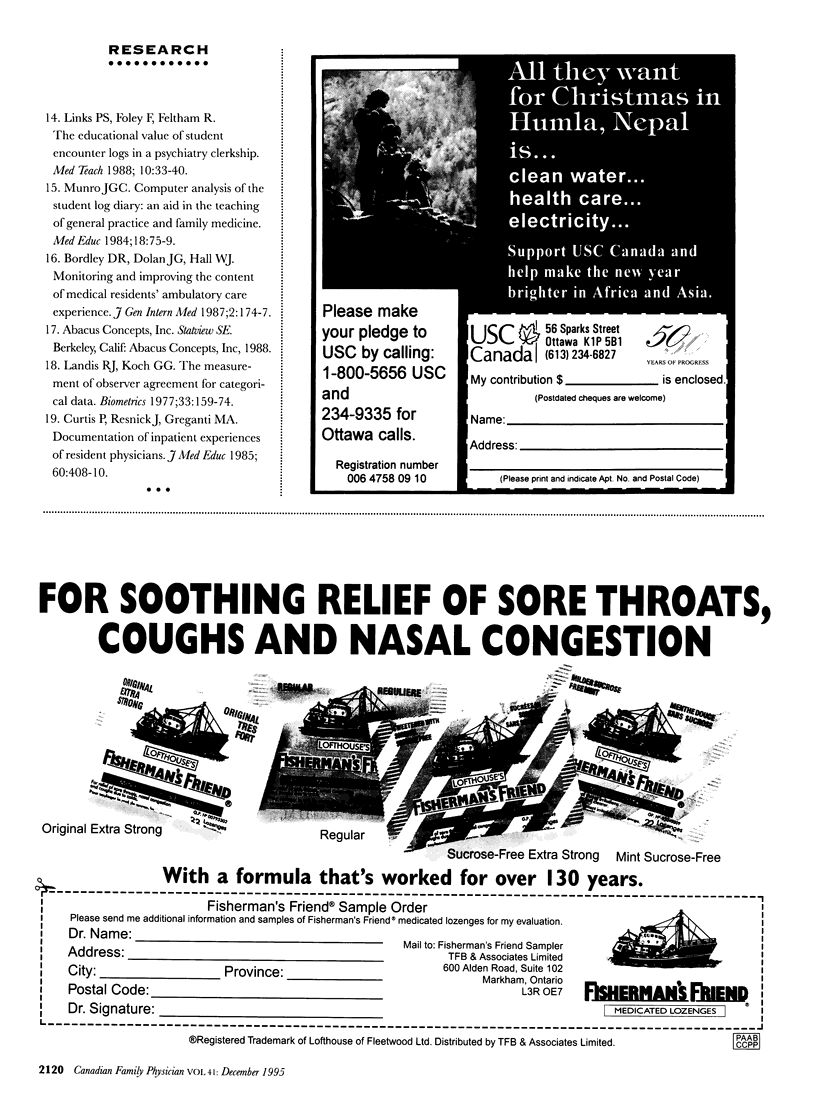
Selected References
These references are in PubMed. This may not be the complete list of references from this article.
- Bordley D. R., Dolan J. G., Hall W. J. Monitoring and improving the content of medical residents' ambulatory care experience: a microcomputer-based method using diagnosis clusters. J Gen Intern Med. 1987 May-Jun;2(3):174–177. doi: 10.1007/BF02596147. [DOI] [PubMed] [Google Scholar]
- Curtis P., Resnick J., Greganti M. A. Documentation of inpatient experiences of resident physicians. J Med Educ. 1985 May;60(5):408–410. doi: 10.1097/00001888-198505000-00010. [DOI] [PubMed] [Google Scholar]
- Feinglass J., Schroeder J., Martin G. J., Wallace W., Lyons J. The relationship of residents' autonomy and use of a teaching hospital's resources. Acad Med. 1991 Sep;66(9):549–552. [PubMed] [Google Scholar]
- Hobbs J., Mongan P. F., Tollison J. W., Miller M. D., Wilson O. R. A decentralized clerkship: strategies for standardizing content and instruction. Fam Med. 1987 Mar-Apr;19(2):133–136. [PubMed] [Google Scholar]
- Hobbs J., Mongan P., Miller M. D. A system for assessing clerkship experience using a logbook and microcomputers. Fam Med. 1987 Jul-Aug;19(4):287–290. [PubMed] [Google Scholar]
- Landis J. R., Koch G. G. The measurement of observer agreement for categorical data. Biometrics. 1977 Mar;33(1):159–174. [PubMed] [Google Scholar]
- Links P. S., Foley F., Feltham R. The educational value of student encounter logs in a psychiatry clerkship. Med Teach. 1988;10(1):33–40. doi: 10.3109/01421598809019323. [DOI] [PubMed] [Google Scholar]
- Mulloy J. V., Leuschen M., Rowe B. H. Computer-based patient encounter tracking. Development of a system for family medicine residents. Can Fam Physician. 1995 Oct;41:1742-4, 1747-51. [PMC free article] [PubMed] [Google Scholar]
- Munro J. G. Computer analysis of the student log diary: an aid in the teaching of general practice and family medicine. Med Educ. 1984 Mar;18(2):75–79. doi: 10.1111/j.1365-2923.1984.tb00976.x. [DOI] [PubMed] [Google Scholar]
- Parkerson G. R., Jr, Michener J. L., Muhlbaier L. H., Falcone J. C. Clinical experience of medical students in model family practices and private family practices. J Fam Pract. 1986 Oct;23(4):361–366. [PubMed] [Google Scholar]
- Rosen R. L., Eshler B., Bone R. C. Comparison of students' encounters with patients in university and community hospitals. J Med Educ. 1986 Jul;61(7):601–603. doi: 10.1097/00001888-198607000-00010. [DOI] [PubMed] [Google Scholar]
- Ruane T. J., Smith B. W. Using a computerized database to manage a decentralized ambulatory care clerkship. Acad Med. 1990 Jul;65(7):438–439. doi: 10.1097/00001888-199007000-00004. [DOI] [PubMed] [Google Scholar]
- Soler N. G., Mast T. A., Anderson M. B., Kienzler L. M. A logbook system for monitoring student skills and experiences. J Med Educ. 1981 Sep;56(9 Pt 1):775–777. doi: 10.1097/00001888-198109000-00014. [DOI] [PubMed] [Google Scholar]
- Witzke D. B., Koff N. A., McGeagh A. M., Skinner P. D. Developing a computer-based system to document and report students' clinical patient encounters. Acad Med. 1990 Jul;65(7):440–441. doi: 10.1097/00001888-199007000-00005. [DOI] [PubMed] [Google Scholar]


